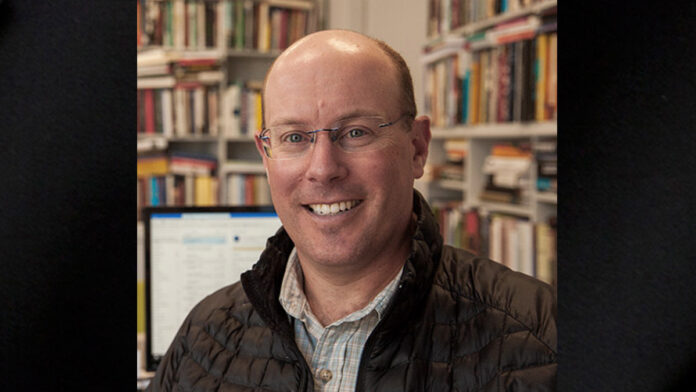By Professor ADAM MENDELSOHN. Article reprinted with permission of Business Day
In SA, casually invoking the Holocaust is done at a whim with little knowledge yet with alarming implications.
In a statement issued on November 6, the SA cabinet wrote of the “holocaust being committed by the Israeli government against the Palestinians”. The day before, former University of Cape Town vice-chancellor Njabulo Ndebele wrote that “Zionist Israel and its people progressively acquire the image of World War 2 Germany and the Nazi exterminators of Jews”. They joined a chorus of similar claims that has echoed over the past weeks.
Such statements provide an indication of the tenor of public rhetoric about the war. But why this ready resort to Holocaust analogies? Why use this particular language when referencing Israel? There are other apt alternatives of more recent origin that are available to describe brutal urban warfare. The second Chechen war. The Syrian civil war. Mosul. Fallujah. But the destruction of Gaza is not compared to Grozny. It is compared to the Holocaust.
At the most superficial level, the invocation of the Holocaust and Nazism reveals the hold both have on our collective imagination. Nazism and the Holocaust serve as an unimpeachable moral shorthand as the ultimate embodiment of evil. To invoke the Holocaust is to make a definitive statement about what is right and wrong. But it is no accident that this analogy is specifically invoked when describing Israel. We rarely if ever see similar language used when describing other regional conflicts — in Yemen, Syria, Libya or Ethiopia, for example — that involve substantially higher numbers of fatalities. (Vladimir Putin’s claim that Russia invaded Ukraine to “denazify” that country is the strange exception.)
So why is it used when describing Israel? Clearly, invoking the Holocaust is designed to hurt. What better taunt than to accuse Jews of acting like Nazis? But the glib claim, made by Ndebele and others, that the victims of the Holocaust have learnt from the Nazi perpetrators does more than that. Whether consciously or not, this morality tale — Jewish victims turned Nazi perpetrators — plays on older canards that Jews are hard hearted and cruel, lust for Old Testament vengeance, and lack Christian forgiveness and forbearance.
Comparing Israelis to Nazis discredits the state of Israel itself. According to a much-repeated but historically fallacious claim, Israel was created by the great powers as penance for failing to save Jews during World War 2. What better way to discredit a state supposedly born out of guilt for the Holocaust than to claim it has engaged in an equivalent genocide?
Accusing Israel of acting like Nazis also undercuts any claim to victimhood on the part of Israelis. The horrors of Hamas’ slaughter of Israeli civilians are quickly forgotten (and perhaps excused?) when Israel is described as engaging in systematic genocide. Nazis are not worthy of any sympathy. There is no need to understand anything about their motives. Nazis and Nazism must be destroyed. Anyone (or any country) that allies itself with Nazis and Nazism is complicit in evil. Anyone who opposes Nazism is on the right side of history.
Invoking Nazism when referencing Israel can also imply that Zionism itself — the belief that Jews should have a homeland of their own — contains a genocidal core. Ethnic cleansing and genocide are imagined to be the inevitable consequences of settler colonialism, and Zionism is imagined as a settler colonial ideology. Trendy academic scholarship has given the patina of legitimacy to these ways of thinking.
So far there is nothing that makes this story distinctively South African. Given the place Nazism and the Holocaust occupy in the popular imagination worldwide, the ready resort to such motifs ought not to be noteworthy. But what makes it interesting in our context is a striking paradox.
World War 2 is not central to our self-understanding as a society in the ways that it is in much of Europe and the US. We do not define ourselves in reference to our role in defeating Nazism (or suffering under Nazi occupation). Ours is not a society that gives much serious public attention to the Holocaust and other examples of genocide.
Yet the fact that SA is distant in time and space from World War 2 Europe paradoxically enables the Holocaust and Nazism to be free-floating signifiers in the SA context. The Holocaust and Nazism are so far from any real memory or understanding of history — yet so superficially familiar because of movies and television — that both can be easily and painlessly deployed as rhetorical ammunition. Ndebele and the cabinet can invoke the Holocaust with very little thought precisely because it means so little to them.
Such analogies are more difficult to make when familiar with a basic outline of the Final Solution and what preceded it. Ghettoisation in Poland with the intention of mass death through starvation. Mobile killing units that systematically combed Eastern Europe to shoot as many as 2-million women, children and men. A plan, when starvation and shooting proved too slow and inefficient, to systematically murder 11-million Jews in Europe using industrial methods. Constellations of concentration and labour camps to temporarily house the victims. Six killing centres — human abattoirs — designed to process trainloads of Jews by gassing and burning the corpses in industrial crematoria. At least 6-million murdered. This was the Holocaust.
This is not material for glib analogies. Distance in time and place, in other words, enables the ignorant to freely use such simplistic analogies in ways that would be impossible where there is a stronger local memory of Nazism and the Holocaust. It seems that in SA, casually invoking the Holocaust is done at a whim with little knowledge or consequence yet with alarming implications. That cabinet and a former university vice-chancellor rushing to such analogies reveals this sad reality. They should know better.
• Published in the December 2023/January 2024 issue – Click here to start reading.
• To advertise in the Cape Jewish Chronicle and on this website – kindly contact Lynette Roodt on 021 464 6736 or email advertising@ctjc.co.za. For more information and advertising rate card click here.
• Sign up for our newsletter and never miss another issue.
• Please support the Cape Jewish Chronicle with a voluntary Subscription for 2023. For payment info click here.
• Visit our Portal to the Jewish Community to see a list of all the Jewish organisations in Cape Town with links to their websites.
Follow the Cape Jewish Chronicle: Facebook | Instagram | Twitter | LinkedIn












